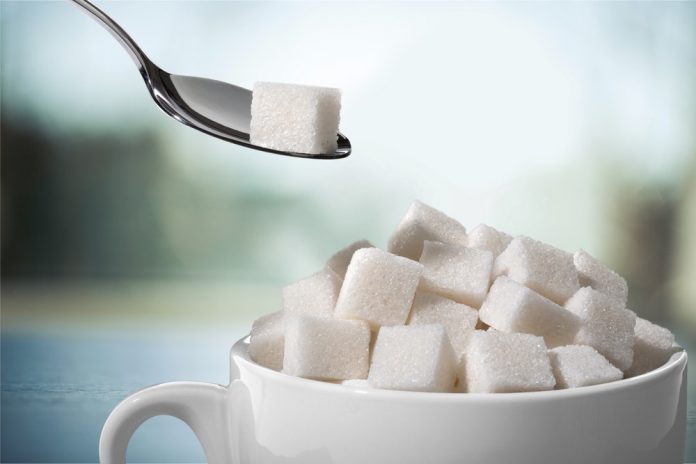Sugar is everywhere, not only in desserts, doughnuts, candies, and cereals but is added into many foods that are not even sweet such as sauces, condiments, canned vegetables, peanut butter and most processed American foods. Sugar may be thought of as a harmless treat for children but too much of it can contribute to a myriad of health problems including cancer, heart attacks, diabetes, tooth decay, liver failure, kidney disease, cognitive decline, depressed immune function, and uncontrollable hunger.
Sugar, heart disease and diabetes
Sugar can provide a quick boost in energy but excess sugar that is not used is converted to fat and stored in the liver in the form of triglycerides, which contributes to liver disease and to plaque formation in blood vessels. People in one study who ate the most added sugar had lower HDL (the good cholesterol) and higher triglyceride levels than people who ate the least sugar. Another study showed that the risk of heart attacks doubles when sugar makes up 20 percent of calorie consumption.
When sugar is consumed, the pancreas increases insulin production to remove excess glucose from the bloodstream and store it as fat. This circulating insulin also causes the liver to produce more cholesterol. Additionally, high blood sugar can cause insulin resistance and increase the risk of diabetes. Approximately one-third of type 2 diabetics eventually develop kidney failure.
Another study in the Journal of the American Medical Association (JAMA) linked sugar consumption and heart disease by comparing two groups of people. One ate no more than 8% of daily calories from sugar, while the other ate about 20% of daily calories from sugar. The second group had a 38% higher risk of dying from heart disease.
Sugar and cancer
Researchers with a Swedish study published in Diabetes Care followed 64,000 people for eight years and found that those with the highest blood sugar levels were more likely to have pancreatic cancer, urinary tract cancer, breast cancer, or malignant melanoma than those with the lowest blood sugar levels.
Sugar and dementia
It is well established that dementia can be linked to diabetes but another study from the University of Washington in the ’90s found that those without diabetes who developed dementia had significantly higher average glucose readings in the 5 years before diagnosis of dementia. Among the diabetics, glucose levels averaged 190 mg/dL in those who developed dementia versus 160 mg/dL in those who did not. Therefore, blood sugar spikes, even in the absence of diabetes, may be a risk for dementia.
Sugar and immune function
According to Dr. Michael Murray, sugar is one of the most damaging foods to our immune system. In one study, two hours after consuming just a half glass of glucose, fructose, sucrose, honey, or pasteurized orange juice the ability of white blood cells to destroy bacteria was reduced by 50%. Depressed immune function effects started within 30 minutes of consumption and lasted for over 5 hours.
Uncontrollable hunger
Circulating insulin, following a spike in blood glucose, brings about a dip in blood glucose which can cause feelings of hunger. That second doughnut just creates a viscous cycle. Eating regular meals of nutritious foods and avoiding excess sugar can keep blood sugar levels stable throughout the day and help keep hunger under control. Some experts claim that small amounts of sugar consumed with high fiber foods may be absorbed more slowly, helping to avoid extreme blood glucose spikes.
How much sugar is ok?
The American Heart Association recommends that women consume less than 100 calories of added sugar per day (about 6 teaspoons or 24 grams) and men consume less than 150 per day (about 9 teaspoons or 36 grams). See the video above to learn how to spot added sugar in food. Reading nutrition labels and doing a little sugar gram counting can be a real eye opener.








